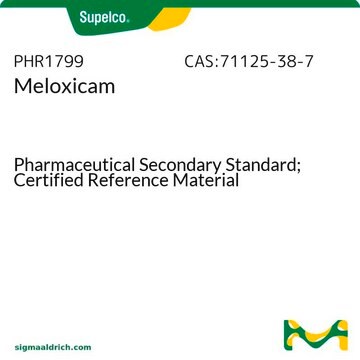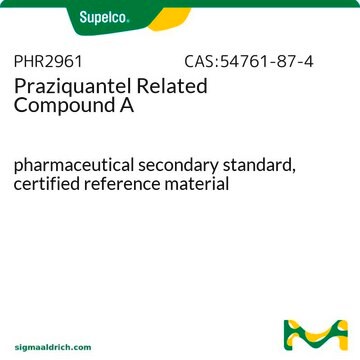おすすめの製品
グレード
analytical standard
品質水準
製品種目
VETRANAL®
シェルフライフ
limited shelf life, expiry date on the label
テクニック
HPLC: suitable
gas chromatography (GC): suitable
mp
205 °C (dec.) (lit.)
アプリケーション
clinical testing
フォーマット
neat
SMILES記法
CCC(O)=O.CCC(O)=O.O=C(Nc1cccc(c1)C2=NCCN2)Nc3cccc(c3)C4=NCCN4
InChI
1S/C19H20N6O.2C3H6O2/c26-19(24-15-5-1-3-13(11-15)17-20-7-8-21-17)25-16-6-2-4-14(12-16)18-22-9-10-23-18;2*1-2-3(4)5/h1-6,11-12H,7-10H2,(H,20,21)(H,22,23)(H2,24,25,26);2*2H2,1H3,(H,4,5)
InChI Key
AFGQXWSHYUHHNV-UHFFFAOYSA-N
類似した製品をお探しですか? 訪問 製品比較ガイド
詳細
アプリケーション
法的情報
シグナルワード
Warning
危険有害性情報
危険有害性の分類
Acute Tox. 4 Oral
保管分類コード
11 - Combustible Solids
WGK
WGK 3
個人用保護具 (PPE)
dust mask type N95 (US), Eyeshields, Gloves
適用法令
試験研究用途を考慮した関連法令を主に挙げております。化学物質以外については、一部の情報のみ提供しています。 製品を安全かつ合法的に使用することは、使用者の義務です。最新情報により修正される場合があります。WEBの反映には時間を要することがあるため、適宜SDSをご参照ください。
Jan Code
33441-BULK:
33441-50MG:
33441-VAR:
この製品を見ている人はこちらもチェック
ライフサイエンス、有機合成、材料科学、クロマトグラフィー、分析など、あらゆる分野の研究に経験のあるメンバーがおります。.
製品に関するお問い合わせはこちら(テクニカルサービス)











